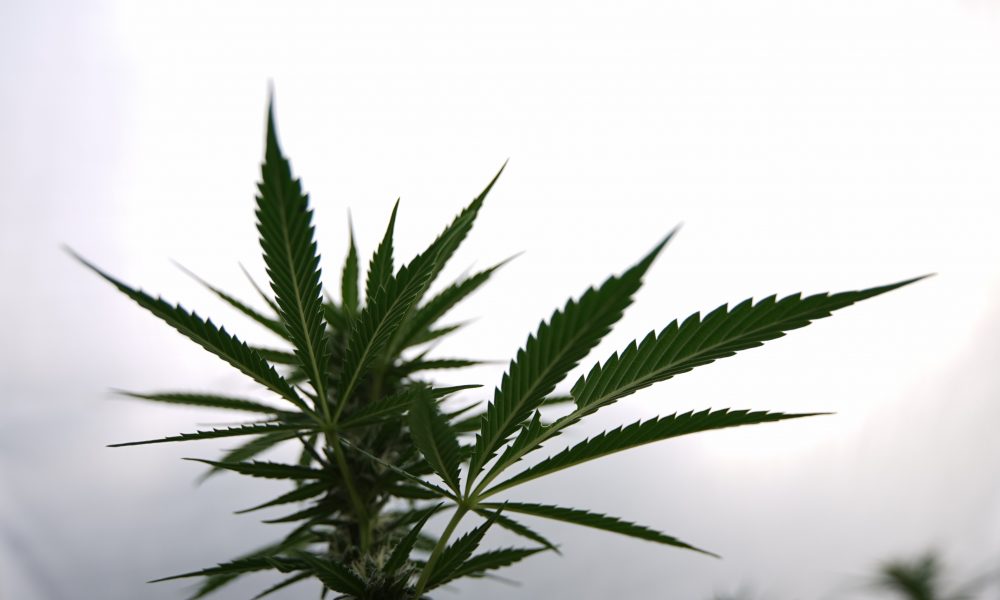Texas House-passed bills to decriminalize marijuana, facilitate expungements and allow chronic pain patients to access medical cannabis as an opioid alternative are officially dead for the year with Senate leadership refusing to bring up the measures for consideration ahead of Monday’s end of the legislative session.
Advocates had held out hope that the Senate would be more amenable to the modest reforms this session than in the past, but Lt. Gov. Dan Patrick (R), who presides over the chamber, continued what has effectively been a years-long blockade on cannabis legislation by not advancing the bills to the floor.
Last month, the House passed a bill that would have removed the risk of arrest or jail time for low-level possession of cannabis and allow people to eventually erase cannabis issues from their criminal records.
The chamber had already passed similar cannabis decriminalization proposals during the past two legislative sessions, in 2021 and 2019. But so far the proposals have consistently stalled in the Senate amid opposition from Patrick.
This year’s bill, HB 218, combined two separate measures from the most recent past session, both of which passed on the full House.
It would have made possession of up to one ounce of marijuana a Class C misdemeanor, removing the risk of jail time and instead imposing a maximum fine of $500. Existing law classifies possession of small amounts of cannabis as a Class B misdemeanor, which carries penalties of up to 180 days in jail and up to a $2,000 fine.
The bill also specified that possession of up to two ounces of cannabis would not have resulted in an arrest, meaning violators would have been cited and released. Further, people with possession convictions for up to two ounces of marijuana could have sought to have those convictions expunged through a court process for a $30 fee.
Meanwhile, another measure that the House approved but which stalled out in the Senate would have allowed medical marijuana as an opioid alternative for people with chronic pain and also replaced the state’s THC limit.
Specifically, the HB 1805 would have replaced the one percent THC cap for cannabis oil from with a volumetric dose of 10 milligrams.
It would also have expanded eligibility for low-THC marijuana products by granting legal access to patients with “a condition that causes chronic pain, for which a physician would otherwise prescribe an opioid.”
The Texas legislature only meets every two years, and the next session is scheduled to begin in January 2025.
Rep. Stephanie Klick (R), who sponsored the medical cannabis expansion bill, said the result in the Senate is “really disappointing because we have more research on chronic pain, we even have care guidelines, clinical guidelines for it, more so than a lot of conditions.”
“It’s a really missed opportunity to help patients,” she told the Fort Worth Star-Telegram. “We’ll try again next session. This really is something that has changed the lives of some patients, and we need to keep working.”
Sen. Charles Perry (R), who chairs the Senate Water, Agriculture, and Rural Affairs Committee where the bill stalled, suggested that similar reforms could be considered in the future, including via a legislative study of the issue ahead of the next session.
“Maybe we’ll have an interim charge,” he told Nexstar. “I hope so. We need to have a conversation.”
—
Marijuana Moment is tracking more than 1,000 cannabis, psychedelics and drug policy bills in state legislatures and Congress this year. Patreon supporters pledging at least $25/month get access to our interactive maps, charts and hearing calendar so they don’t miss any developments.![]()
Learn more about our marijuana bill tracker and become a supporter on Patreon to get access.
—
Separately, a Texas Democratic senator brought the issue of marijuana legalization to the Senate floor earlier this month, seeking to attach to an unrelated resolution an amendment that would’ve allowed Texans to vote on ending prohibition at the ballot box.
But the symbolic proposal was ultimately shut down. Patrick agreed to another member’s point of order, deeming the cannabis amendment not germane to the broader legislation.
This month, voters in Texas’s second-most populous city, San Antonio, overwhelmingly rejected a ballot initiative that would have decriminalized marijuana and blocked enforcement of abortion restrictions, among other reforms. Voters in Harker Heights, meanwhile, narrowly reaffirmed a cannabis decriminalization measure they previously approved last year but which was later repealed by local officials.
The advocacy group Ground Game Texas has secured a number of other reform victories in recent elections. That includes Austin, where voters strongly approved a marijuana decriminalization measure last May.
Nearly three in four Texas voters (72 percent) support decriminalizing marijuana, according to a University of Texas/Texas Politics Project poll in December. More than half (55 percent), meanwhile, said they’re in favor of broader legalization. Seventeen percent said it shouldn’t be legal at all.
A more recent survey from the same institution similarly showed that a majority of Texas voters feel that the state’s marijuana laws should be “less strict.”
Texas lawmakers also recently filed a series of new bills aimed at promoting and expanding psychedelics research in the state.
New York Regulators Plan To Launch Marijuana Farmers Markets ‘Within A Month’ To Help Meet Demand
Photo courtesy of Chris Wallis // Side Pocket Images.
Read the full article here

